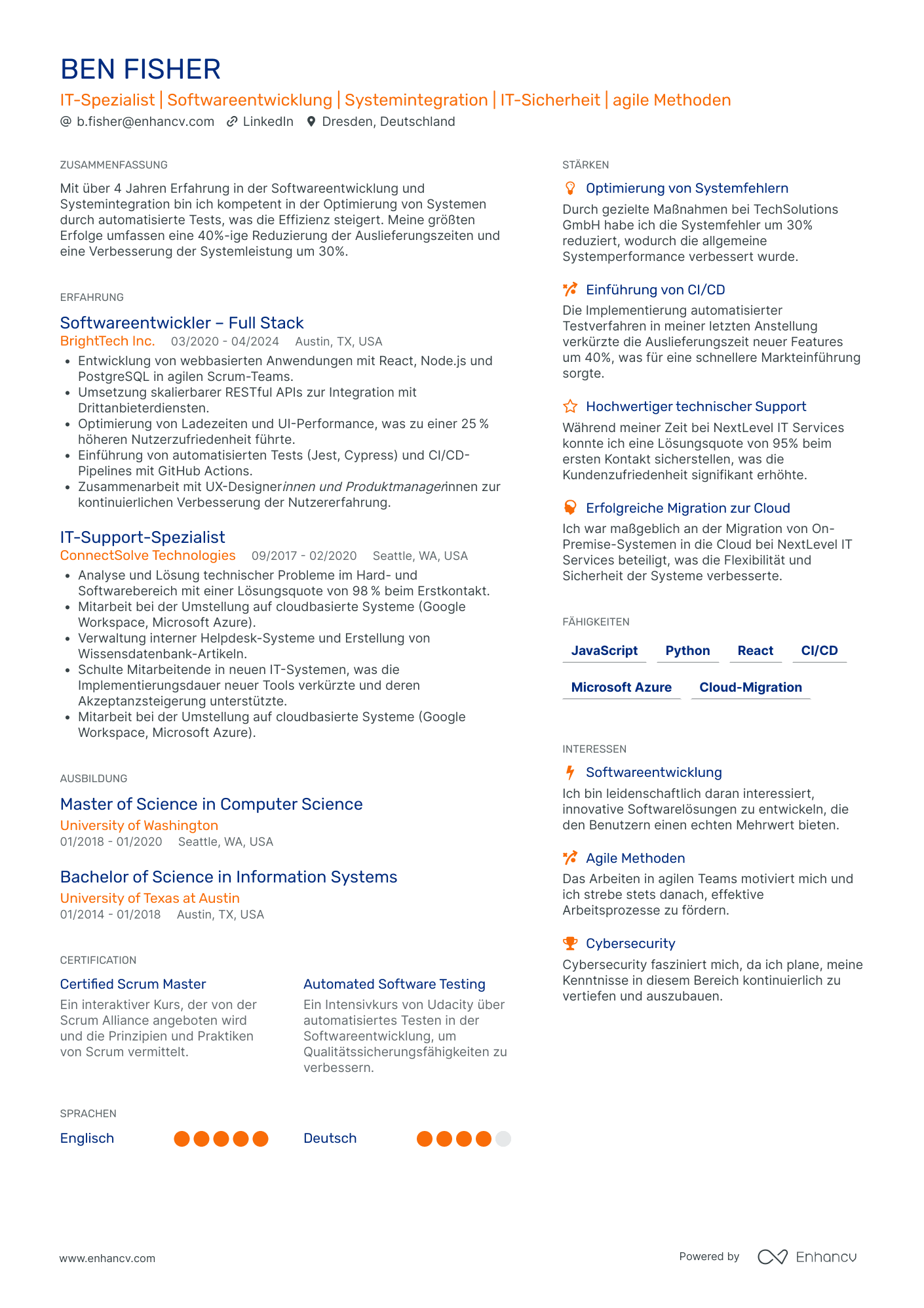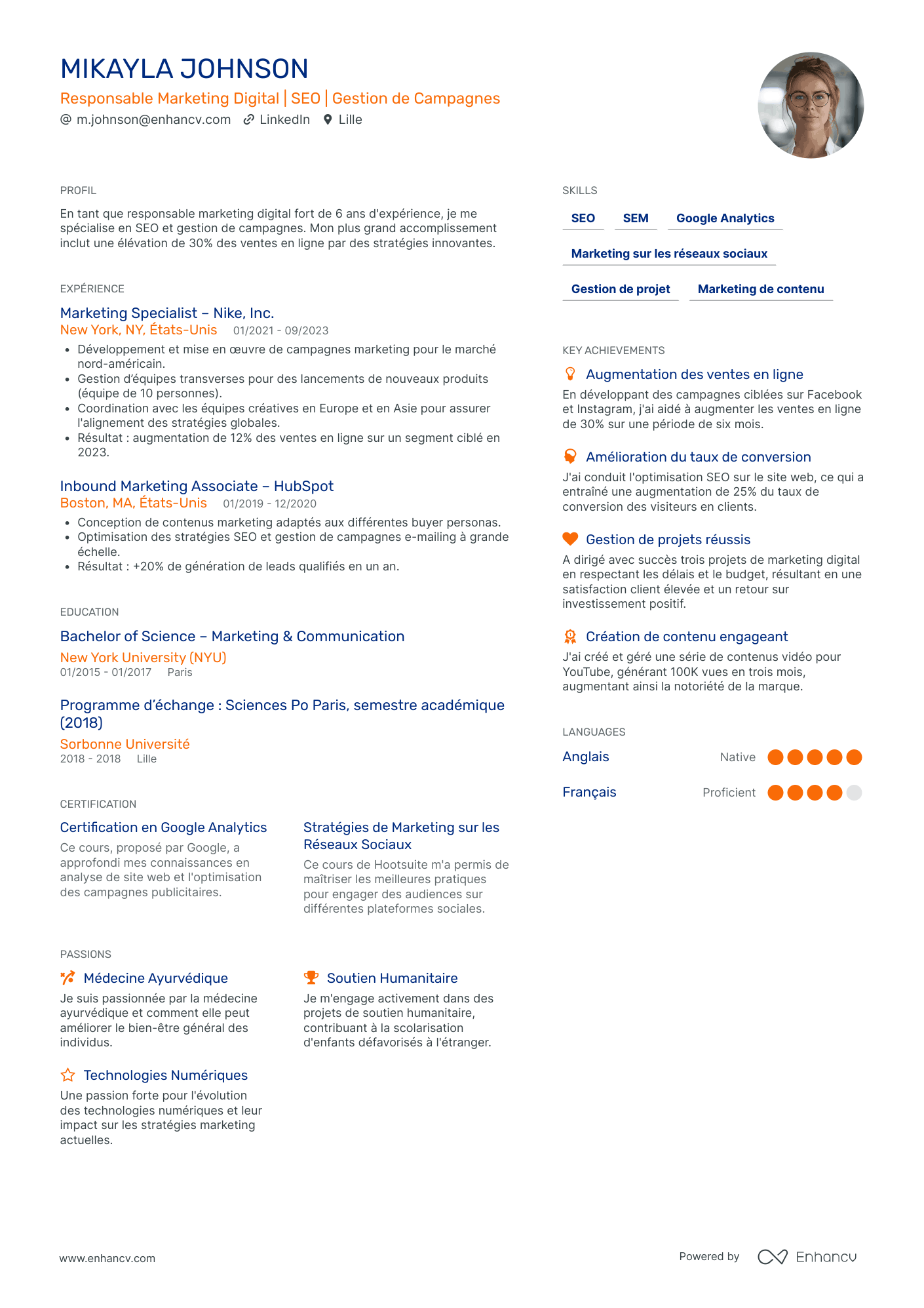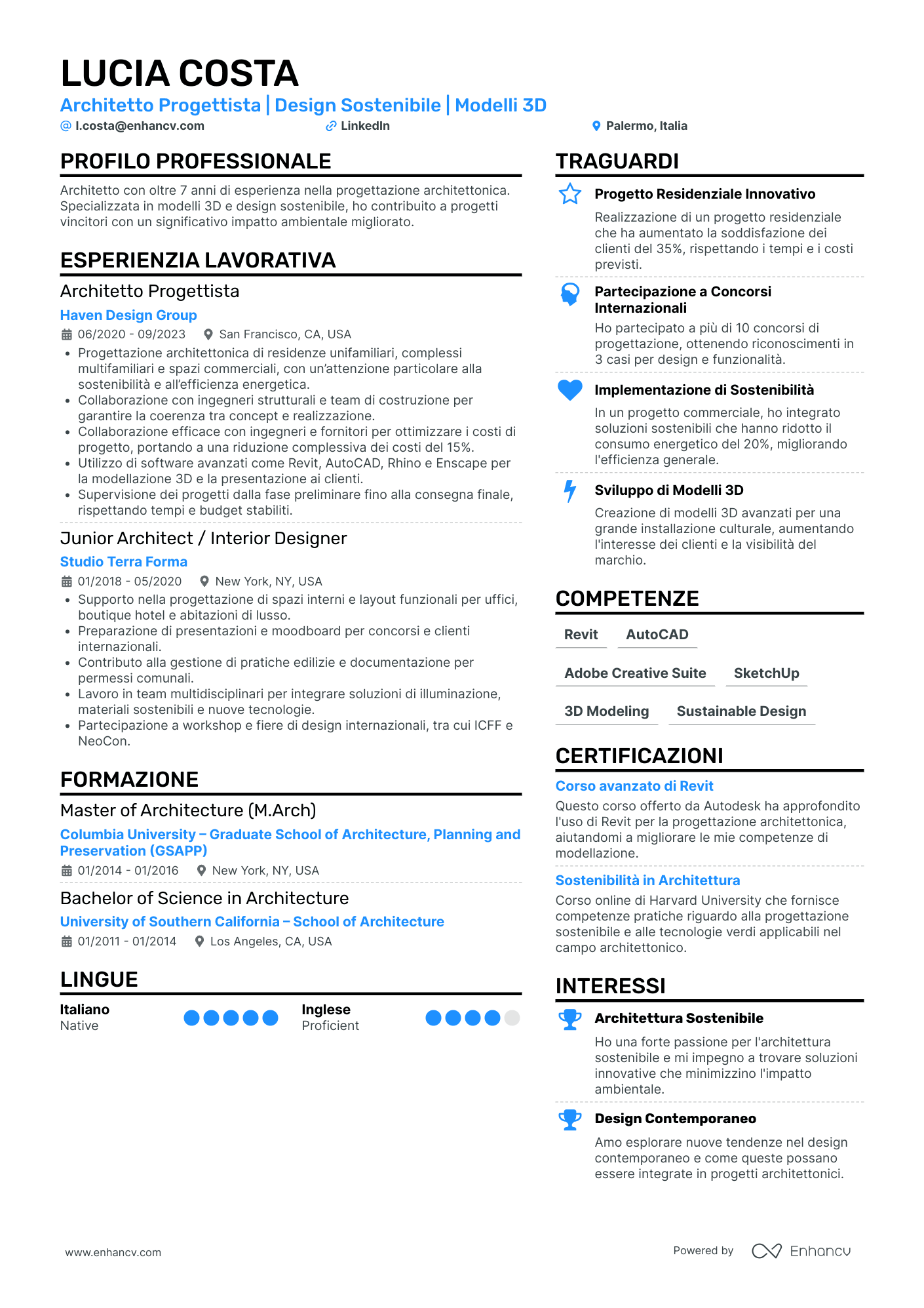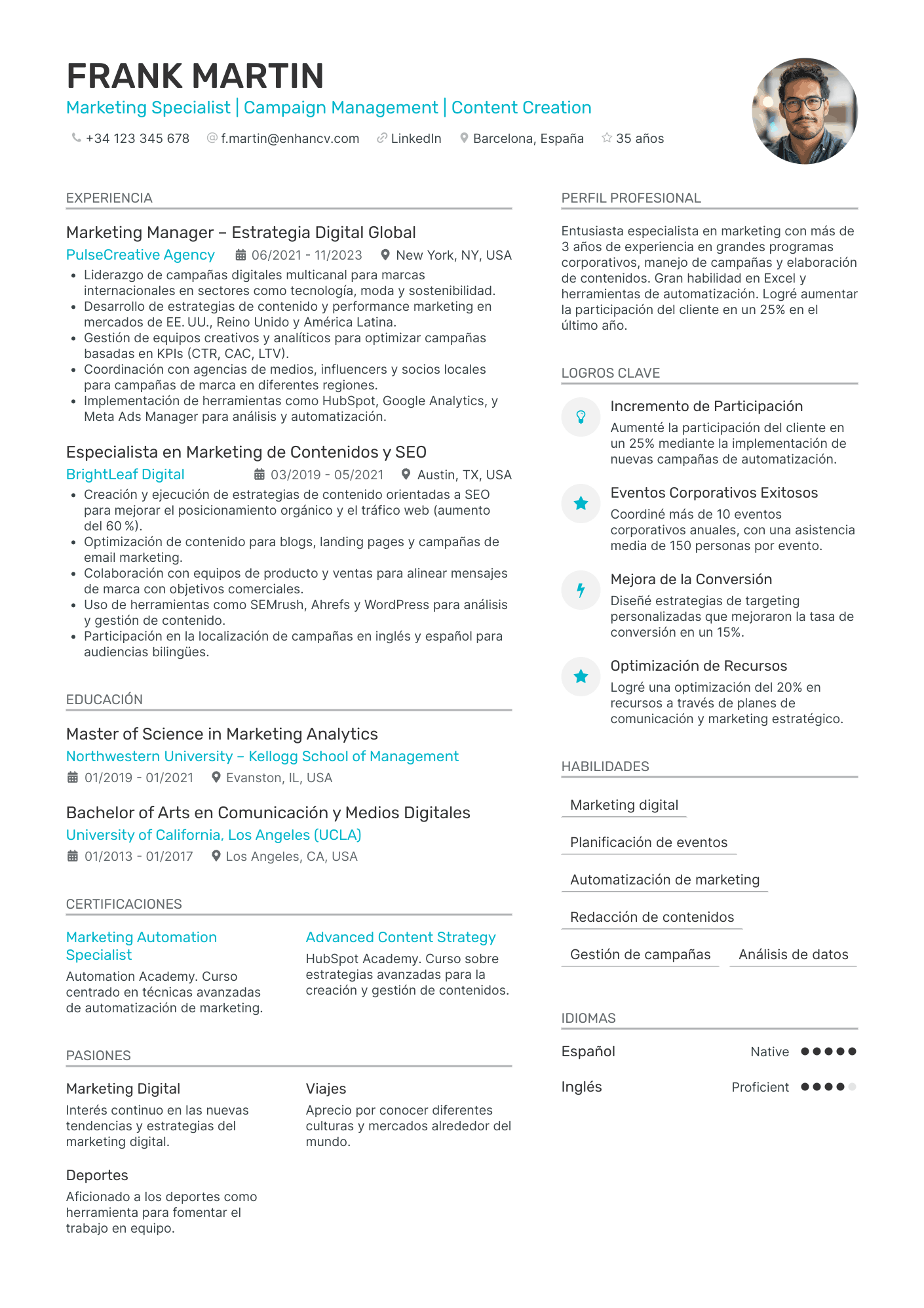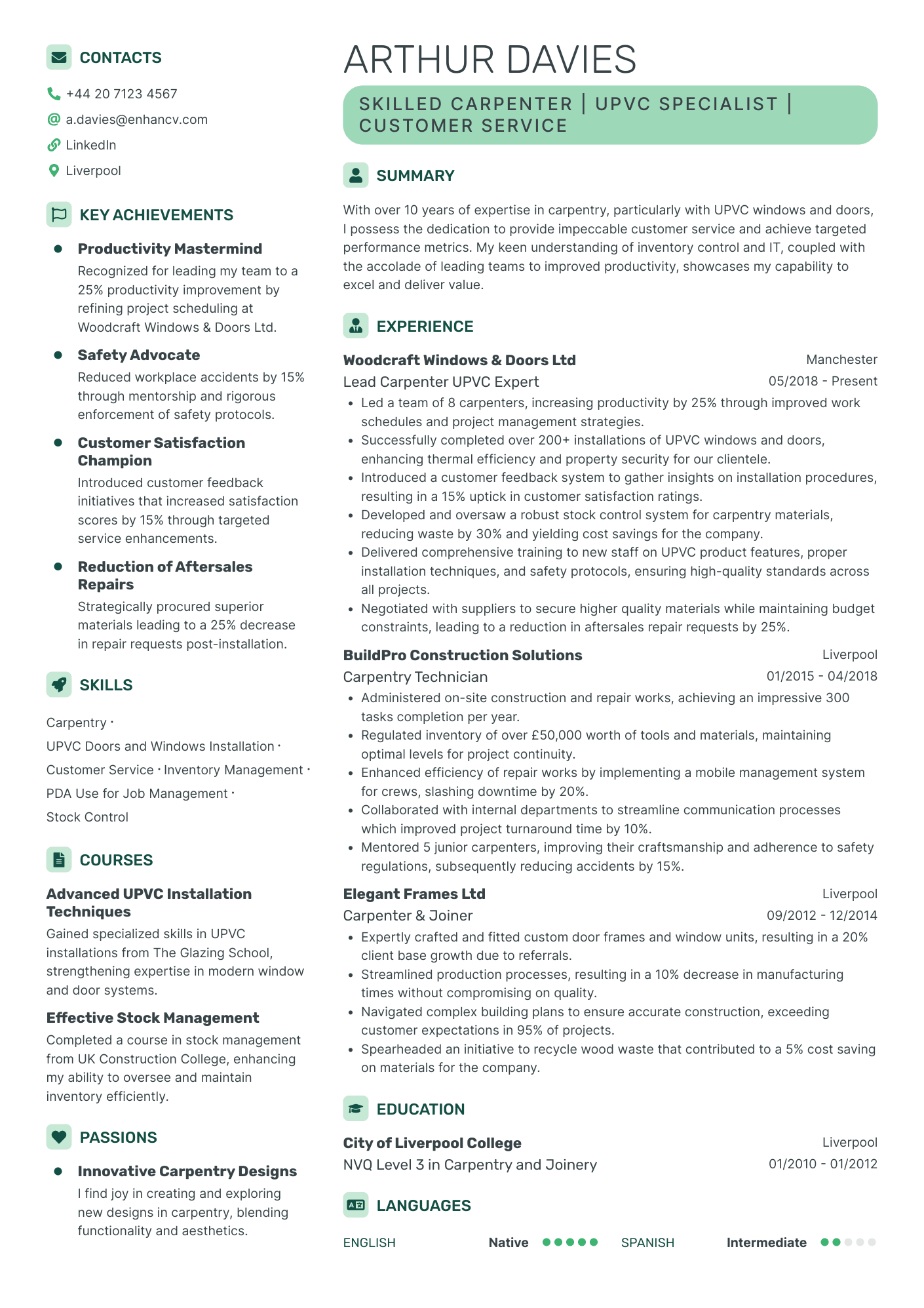Since the 2024 US election, interest in living and working abroad has spiked—and while Canada remains a popular option, more Americans are setting their sights on Europe. For some, it’s about the political climate or personal freedom. For others, it’s the lifestyle, job opportunities, or the chance to hit reset in a completely new environment.
Within 24 hours of the election results, online searches about moving abroad jumped by more than 1,500%, with growing interest in countries like Germany, Ireland, and the UK. Europe offers a high quality of life, strong labor protections, walkable cities, universal healthcare, and the chance to build an international career.
Before you book that flight, though, build a winning resume that meets European standards and gets noticed by local employers.
In this article, we’ll walk you through everything you need to know: how to find a job in Europe as an American, how to navigate visas and job hunting, and how to tailor your resume for success.
Key takeaways
- Americans can work in Europe legally with the right visa—Blue Card, sponsored permit, or digital nomad visa.
- Start your search by assessing your skills, language abilities, and visa eligibility before picking a country.
- Job boards like LinkedIn, EURES, and local platforms are key—alongside reaching out to recruiters directly.
- A European-style resume differs from a US one—longer, clearer, and tailored to local norms.
- In-demand fields include tech, healthcare, education, customer support, and remote freelance work.
- Countries like Ireland, Germany, and the Netherlands offer the best chances for English-speaking roles.
Can Americans work in Europe?
If you’re a US citizen, you can work in Europe legally as long as you have a legal route to do so. Let’s review the options.
EU Blue Card
One of the most accessible options for Americans is the EU Blue Card. It was designed to attract highly skilled professionals to Europe, especially in spheres where shortages of personnel are present or expected.
The Blue Card serves as a work and residence permit and is available in most EU countries (except for Ireland and Denmark). What’s required is a university degree or equivalent experience, along with a job offer that meets a specific salary threshold.
You apply for the EU Blue Card yourself, but only after you’ve secured a qualifying job offer from a European employer.
Sponsored work visa
A sponsored work visa is another option. Countries like Germany, Ireland, and the Netherlands offer various employer-sponsored options.
These typically require proof of qualifications, salary minimums, and health insurance. The key here is making a strong first impression—your resume needs to align with local expectations to be considered for sponsorship.
For sponsored work visas, the employer typically initiates the process by applying for a work permit on your behalf.
Digital nomad visa
For remote workers and freelancers, several countries now offer digital nomad visas.
These allow you to live in Europe while working for clients or companies abroad. The requirements are pretty straightforward: proof of income, international health insurance, and (sometimes) a background check. It’s a flexible option if you want to live in Europe without needing a local job offer.
With digital nomad visas, you handle the entire application yourself, since you’re not tied to a local employer.
Aside from the right to work, all these permits allow you to rent housing long-term, set up a bank account, and access healthcare. In other words, to become a true European citizen!
Sounds nice, right? But before you do all that, you need to find the right job. Let’s see how.
How to find a job in Europe
Finding work in Europe as an American often starts online—but landing one requires local context, a standout resume, and persistence.
And moving to another country isn’t just about the job. It’s also about finding the right fit: professionally, linguistically, and culturally.
Before applying, there are a few important things to think through.
What to consider about finding a job in Europe
- Choose a country that matches your goals and lifestyle.
- Check if your skills are in demand in that country.
- Research visa options (e.g., EU Blue Card, sponsored work visa, digital nomad visa).
- Use the right job boards: LinkedIn, EURES, EuroJobs, and local sites like StepStone or IrishJobs.
- Reach out to recruitment agencies like Hays and Adecco.
- Contact companies directly with personalized outreach and a resume that reflects the country’s standards.
- Tailor your resume to European formats: clear layout, metric-based achievements, and meeting local expectations.
- Consider language requirements—can you work with English only, or is basic local fluency helpful?
Let’s discuss the steps—one by one.
Step 1. Start with self-assessment
Ever heard the phrase “Wherever you go, there you are”? Well, it applies to finding a job as well. First, you need to evaluate your current skills and qualifications. Are they transferable internationally?
Another important thing to consider is any foreign languages you speak, and how they intersect with the qualifications you have. Are the countries where your skills are in demand a match for the languages you know? If not, would you explore a career change that fits the market? Or would you try to learn a new language instead?
After you’ve assessed your skills, it’s time to research which countries have a demand for your profile and offer legal pathways for you to work there.
Step 2. Explore your options
Factor in lifestyle and culture—where would you feel at home personally and professionally? Consider the pace of life (e.g., relaxed in Spain vs. fast-moving in Berlin) and the work culture (hierarchical in France vs. flat in the Netherlands).
Look into the cost of living too: cities like Lisbon or Budapest may offer a better lifestyle-to-income ratio than, say, Paris or Zurich.
Finding a job in Europe as an American means you need to be realistic about language expectations. Some countries are English-friendly in specific sectors, while others expect you to speak the local language even for non-public-facing roles.
Finally, make a shortlist of one or two countries that best match your skills and goals.
Step 3. Start the search
Here are the most common ways to start your job search in Europe:
Best job boards and platforms for finding work in Europe
| Platform | Best for |
|---|---|
| International jobs, networking, recruiter visibility | |
| EURES | EU-wide job listings, public-sector roles, relocation |
| StepStone | Regional listings in Germany, Belgium |
| IrishJobs.ie | Jobs in Ireland (tech, healthcare, education) |
| InfoJobs | Spanish market (education, tourism, customer support) |
| Welcome to the Jungle | Startups and creative industries (France) |
| Recruitment Agencies (e.g., Hays, Michael Page, Adecco) | Specialized roles, sponsorship guidance |
| Upwork/Toptal | Freelance, remote work, digital nomad-friendly income |
PRO TIP
A strategic way to land a job in Europe is by working for a US-based branch of an international company that has offices or headquarters in the EU—and then transferring internally. These roles often bypass the challenges of cold applications and visa sponsorship from scratch, since the company already knows you and handles much of the relocation process.
Even if you’re not yet in one, joining a multinational with known European operations can be a long-game strategy to work abroad without having to navigate foreign hiring systems from the outside.
Found a job you like? To stand out when you apply, your resume needs to meet European expectations in format, tone, and structure.
The Enhancv Resume Builder is designed to help with that. And if you already have a resume, our free ATS checker can ensure your application will win over recruiters.
Is your resume good enough?
Drop your resume here or choose a file. PDF & DOCX only. Max 2MB file size.
Let’s see what your document needs to contain.
Step 4. Create a tailored European resume
When applying for jobs in Europe as an American, your resume is your first—and sometimes only—shot at making a first impression. But here’s the catch: European employers have slightly different expectations when it comes to format, tone, and content. So don’t just translate your US resume, but think about adapting it to local expectations.
In Europe, the terms resume and CV (curriculum vitae) are often used interchangeably, so don’t be confused.
Format and length
While US resumes are usually one page, many European countries (especially Germany, France, and the Netherlands) are used to longer resumes—or CVs. Two or three pages are widely accepted, and sometimes even expected, regardless of the seniority of the role.
Most European employers prefer a reverse-chronological format, meaning your most recent experience comes first.
However, in some markets (like France or Germany), education may appear before experience—especially for junior candidates or academic fields.
Stick to a single-column layout unless you’re in a creative industry (design, marketing, etc.), where a two-column or slightly more visual format may be acceptable.
Personal details
In some European countries, it’s common to include a photo, date of birth, nationality, and even marital status. In contrast, countries like the UK and the Netherlands—similar to the US—discourage this to reduce bias. Check country norms before applying.
Resume sections
The structure of your European resume is very similar to the one preferred in the US.
Make sure you include these resume sections:
- A brief profile or summary (two to three lines max).
- Your experience—in Europe, it’s common to cover your full work history—not just the most relevant roles—as long as it’s concise and clearly outlined.
- In most European countries, education is expected to appear prominently (often above work experience for early-career applicants) and should include a degree title, institution, location, and graduation date—sometimes even a GPA or your thesis title.
- Key skills (technical + soft).
- Language section—especially important when you’re applying to another country.
- Optional: certifications, volunteering, or international experience.
Language proficiency
In a multilingual continent like Europe, your language skills can be a major advantage—even if the job itself is in English. It’s a good idea to include a dedicated “Languages” section near the bottom of your resume.
Use CEFR levels (A1 to C2) to describe your proficiency, as this scale is widely recognized by European employers.
Even if you only speak the basics of the local language, listing it shows initiative and a willingness to integrate, which can help set you apart.
Localization
Always follow the language used in the job posting. If the ad is in English, it’s safe to submit your resume in English—especially when applying to international companies or roles where English is the working language.
However, if the job posting is in another language, it’s usually expected that your resume and cover letter match that language.
Use British English spelling when applying in the UK or Ireland (e.g., organisation, labour, programme) to align with local norms.
Optimizing for applicant tracking systems
Applicant tracking systems (ATS) are used across Europe—especially in tech, multinational companies, and larger employers—though not quite as universally as in the US. In many smaller European firms or local employers, resumes may still be reviewed manually.
That said, it’s still safest to optimize your resume for ATS by default, particularly if you’re applying through online portals. Avoid text boxes, tables, or charts, and save your resume as a PDF, unless the posting requests another format.
Resume file name
Avoid generic file names like Resume.docx or CV_final_final2.pdf. Instead, use а descriptive format, such as Firstname-Lastname-CV.pdf. This helps recruiters keep track of your application and immediately shows you’re organized and serious.
Cover letter expectations
While cover letters are becoming less central in some hiring processes, many European countries—especially Germany, France, and Austria—still expect one, particularly in more formal or corporate roles.
Just like your resume, it should be tailored to the job and show you’ve researched the company and role. Don’t just rehash what you’ve already outlined on your resume, though. Instead, use real-life examples from your career to make a positive impression.
Popular jobs for Americans in Europe
In theory, US citizens can work in just about any job in Europe—as long as they meet the qualifications and language requirements and obtain the necessary work permit. Sure, you’re probably not going to run for office or become a judge, but most private-sector jobs are fair game if you’re the right fit.
That said, some roles are more accessible than others. It depends on demand, visa sponsorship, and whether the role requires the local language. Tech and international companies often hire English speakers, while public-facing jobs may require fluency.
If you work in a high-demand field like software, design, education, or customer support, you’ll have a better shot.
The key is finding the overlap between your skills and what’s needed in the country you’re targeting.
Let’s explore some possibilities.
Best jobs in Europe for Americans
- Healthcare (nursing, general practitioners, medical researchers)
- Engineering (mechanical, civil, electrical, and industrial)
- IT & Software development (developers, data analysts, cybersecurity specialists)
- English teaching (ESL teachers, international school educators)
- Digital marketing & content (SEO, social media, content writing)
- Customer support
- Skilled trades (electricians, plumbers, technicians, construction)
- Remote freelance & contract work (writing, design, consulting, development)
Popular European countries to work in
Now, back to choosing your new European home. Some countries offer better job access, English-speaking opportunities, or quality of life—and many already have thriving American expat communities. The one you choose will depend on a variety of factors.
Let’s discuss some popular options.
Germany
Home to Europe’s largest economy and cosmopolitan cities like Berlin, Munich, and Hamburg, Germany offers plenty of opportunities, especially in tech, engineering, and research.
The job market can be competitive, and some roles may require German, but for international companies and startups, English is often enough.
PRO TIP
If you haven’t found a job, and you’re under 35, you can try for the Opportunity card, or Chancenkarte, in Germany. Launched in 2024, it allows qualified non-EU professionals to move to the country without a job offer and look for work for up to a year.
Aside from age, it takes into account education, work experience, and language skills (German A1 or English B2).
It’s a great option for Americans who want to explore the German job market firsthand before securing a full-time position.
Here’s a resume template you can use when applying for a job in Germany.
France
France combines a rich culture and strong labor protections. While you’ll find international roles in major hubs, most workplaces, especially outside the capital, will expect a certain level of the language. In fact, 70% of employers in France prioritize candidates with proficiency in French.
Teaching English also requires some knowledge of the local language and is a highly competitive field. Other options include jobs in tourism, luxury, and the creative and cultural sectors.
Use this French resume example as a base:
Italy
Italy offers a laid-back lifestyle, excellent food, and is naturally a strong choice for Americans interested in fashion, hospitality, tourism, or architecture.
However, be advised that finding a job in the country is challenging, and wages are typically lower than in Northern Europe.
As in other European countries, however, native English is always sought-after, and local language skills will go a long way.
The Enhancv Resume Builder is also available in Italian to give you those extra bonus points!
Spain
With its diversity and sunny weather, Spain attracts many Americans. Finding a job is possible, but it’s most realistic through a few key routes: teaching English, remote work via the digital nomad visa, or an intra-company transfer. These paths let you bypass much of the local hiring red tape and are popular among US expats.
While traditional job openings can be competitive—especially without EU citizenship—roles in tourism, customer support, or international companies do exist, particularly if you bring in-demand skills or some Spanish language ability.
If you decide to give it a go, try out this CV for Spain:
The Nordics (Sweden, Norway, Finland, Denmark, Iceland)
If you’re looking for an excellent quality of life, progressive values, and great salaries—the Nordics deliver. Locals speak near-perfect English, but proficiency in the local language is often required.
Certain job sectors are in high demand, particularly technology, engineering, healthcare, and renewable energy.
Be aware that the cost of living is high and immigration policies vary.
The Baltics (Estonia, Latvia, Lithuania)
Often overlooked, the Baltics are quietly becoming one of Europe’s most exciting regions for tech, startups, and remote work.
- Estonia is widely known for its digital-first approach and strong startup scene—it has the most startups per capita in Europe and pioneered e-residency and a digital nomad visa.
- Lithuania is emerging as a fintech and cybersecurity hub.
- Latvia’s capital, Riga, is home to a growing number of AI, health tech, and mobility startups.
Most opportunities are centered in the capitals, where younger professionals often speak fluent English and the cost of living remains far more affordable than in Western Europe.
The EU labor market preference principle
This is something not many Americans realize up front, but it’s essential to understand: under EU law, European citizens must be given hiring priority over non-EU applicants in most job markets.
In practical terms, this means if two candidates are equally qualified—one American and one from the EU—the employer is legally obligated to hire the EU citizen first unless they can prove there were no suitable EU applicants for the role.
This regulation exists to protect the European labor market and is enforced more strictly in some countries (like France, Italy, and Spain) than others.
It doesn’t make it impossible to find a job—just more important to target sectors with clear skill shortages or companies accustomed to hiring internationally.
English-speaking European countries
For Americans looking to work in Europe without learning another language, a few countries stand out—either because English is an official language or it’s widely used in the workplace.
These destinations offer the smoothest transition, especially for first-time expats.
The UK
Even post-Brexit, the UK remains one of the most attractive options for Americans seeking English-speaking jobs in Europe. London, in particular, is a global hub for finance, media, tech, and healthcare.
That said, visa requirements have tightened, and Americans now need a Skilled Worker visa or sponsorship from a UK employer to legally work there.
Jobs in sectors like nursing, teaching, engineering, and software development are currently in demand and offer a higher chance of visa approval.
Take a look at this British CV.
Ireland
Ireland is one of the most popular choices for Americans thanks to its English-speaking environment, welcoming culture, and strong job market. Major US companies like Google, Apple, Meta, and Pfizer have European headquarters here, especially in Dublin and Cork.
The country offers solid opportunities in tech, education, healthcare, and tourism. While you’ll need a visa, it’s often more accessible than many other EU countries when it comes to hiring Americans.
Malta
Malta, a small island nation in the Mediterranean, is an English-speaking country with a relaxed lifestyle and a growing job market in tourism, customer service, accounting, and blockchain.
It’s a favorite for Americans looking for sun, sea, and a simpler pace of life—but who still want access to the European job market. Most jobs are concentrated in Valletta and Sliema, and while salaries are lower than in Northern Europe, the cost of living is generally more manageable.
What about non-EU countries?
These countries are not part of the EU’s shared work and residency system, so you’ll need to meet that specific country’s visa requirements and apply independently.
They also don’t follow the EU hiring preference rule, which can sometimes make it slightly easier for qualified non-EU applicants to compete—though job competition and sponsorship requirements still apply.
Let’s do a quick recap of the most popular choices:
Highly popular for Americans (well-developed, high-demand sectors)
- United Kingdom: Skilled Worker visa required, tied to a job offer from an approved employer. Salary thresholds and sponsorship are mandatory.
- Switzerland: Employer-sponsored work permit, based on proof of qualifications, and compliance with labor market tests.
- Norway: Skilled worker residence permit required, with a job offer in a skilled occupation, relevant education or experience, and salary meeting Norwegian standards.
- Iceland: Work permit or remote work visa; job offer or proof of remote employment, sufficient income, and health insurance.
Emerging options for digital nomads and expats
- Serbia: Americans can stay visa-free for 90 days, but working longer requires a D visa plus a combined residence and work permit, sponsored by the employer.
- Georgia: Offers a simple work visa process and a remote worker-friendly environment, in compliance with local labor laws.
- Montenegro: Temporary residence and work permit tied to a job offer, employer sponsorship, and compliance with local labor laws.
- Armenia: Growing tech sector, with straightforward work permit requirements.
Got another question? Try the section below.
Frequently asked questions about finding a job in Europe as an American
Is it difficult to get a job in Europe as an American?
It depends on your field, skills, and where you’re applying. While Europeans are given hiring priority, many industries—like tech, healthcare, and education—actively seek international talent. With the right visa, a targeted resume, and persistence, Americans can absolutely find work in Europe.
How long can I work remotely in Europe?
Most tourist visas allow US citizens to stay for up to 90 days in the Schengen Area, but you can’t legally work during that time. If you're planning to work remotely for a longer period, look into digital nomad visas offered by countries like Portugal, Croatia, and Estonia—they typically last six to twelve months and can sometimes be extended.
Can Americans work in Europe without a visa?
No. To work legally in Europe, Americans need a valid work visa or residence permit. Tourist visas don’t allow employment. Options include the EU Blue Card, employer-sponsored visas, and digital nomad programs, depending on the country and job type.
What is the EU Blue Card and how do I get one?
The EU Blue Card is a work and residence permit for highly skilled non-EU professionals. To qualify, you need a university degree (or equivalent experience), a job offer from a European employer, and a salary that meets the national threshold. It’s available in most EU countries except Ireland and Denmark.
Do I need to speak a foreign language to work in Europe?
Not always. Many jobs in tech, customer support, and international companies are English-speaking, especially in cities like Berlin, Amsterdam, and Dublin. However, speaking the local language can increase your job prospects, especially in public-facing roles or smaller markets.
What is a Golden Visa in Europe?
A Golden Visa is a type of residency permit granted to individuals who invest in a country—usually through real estate or business. It's not designed for job-seekers but is an option for high-net-worth individuals looking to live in Europe long-term. Portugal, Greece, and Spain offer popular Golden Visa programs.
Conclusion
Nearly 800 thousand Americans live in Europe, so if this is your dream, it’s absolutely possible—with the right planning and positioning.
From choosing a country to crafting the perfect CV, our guide gives you the tools to confidently take the next step toward your European career.
Make one that's truly you.





